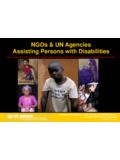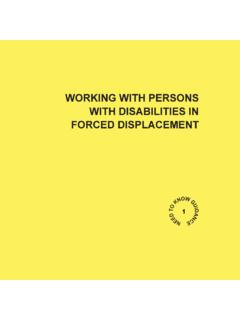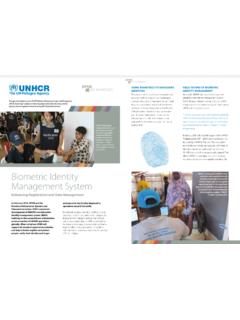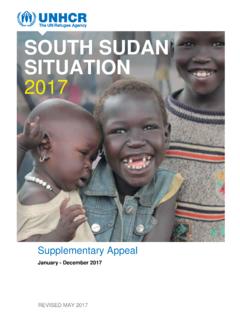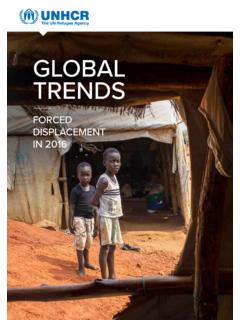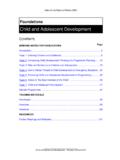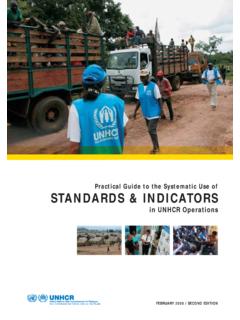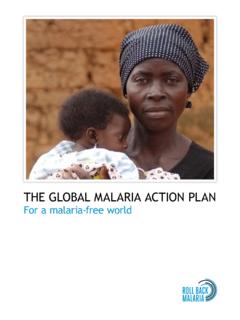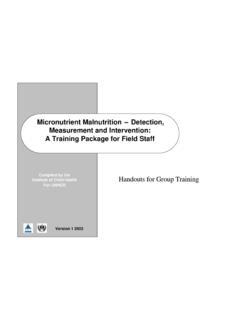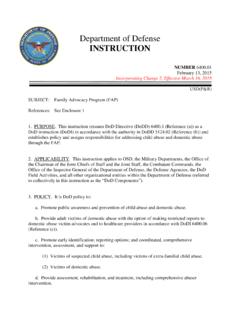Transcription of Lebanon - UNHCR
1 FACT SHEET 1 Lebanon January 2020 More than eight years into the Syria crisis, Lebanon hosts the largest number of refugees per capita in the world, with the Government estimating that million Syrian refugees are present in the country. Lebanon also hosts more than 17,000 refugees of Iraqi, Sudanese and other origins, and more than 200,000 Palestinian refugees under UNRWA s mandate. The presence of such a large refugee population in a small country facing an economic crisis, high unemployment, pressure on infrastructure, and environmental challenges increasingly risks affecting inter-community relations and social stability. POPULATION OF CONCERN Country of origin (registered refugees) * Registration figures as of 30 December 2019 ** UNHCR registration of Syrian refugees in Lebanon has been suspended since May 2015 through a decision by the Government of Lebanon FUNDING USD 535 M requested for the Lebanon operation UNHCR PRESENCE Staff: 560 National Staff 115 International Staff Offices.
2 1 Branch Office in Beirut 2 Sub-offices in Tripoli and Zahle 2 Field Offices in Mount Lebanon and Tyre 914,64813,6042,3232,044 SyriaIraqSudanOtherFunded 11% $61M Unfunded 89% $474M FACT SHEET > Lebanon / January 2020 2 Working in Partnership The Lebanon Crisis Response Plan (LCRP) is led by the Ministry of Social Affairs (MoSA) on behalf of the Government of Lebanon and the UN Humanitarian Coordinator. UNHCR co-leads the humanitarian refugee response component of the LCRP, while UNDP co-leads the resilience component, both agencies working in close collaboration with the Government of Lebanon and humanitarian and development actors in doing so. UNHCR also co-leads a number of thematic sectors, namely Protection, Basic Assistance, Health, and Shelter, and provides support to other sectors, including Education, Social Stability and WASH.
3 Main activities Protection Advocacy aimed at preserving the protection and dignity of refugees while they remain in temporary exile in Lebanon is at the core of UNHCR s work. In an increasingly restrictive protection environment, where multiple measures are being taken to restrict (re-)entry of Syrians to the territory, the use of hard structures in shelters to protect against the elements, and access to livelihoods, advocacy grounded in international standards and the rule of law remains a central component of UNHCR s protection and solutions work. UNHCR regularly verifies and updates the data of Syrian refugees who registered with UNHCR before the Government s instruction in 2015 to suspend registration, and registers and determines the claims of asylum-seekers of other nationalities.
4 Accurate data is needed to inform planning and interventions, including eligibility for assistance, responses to refugees with specific needs, and the identification of durable solutions. In 2019, UNHCR fully verified 72% of registered Syrian refugees, while updating key changes in, for example, family composition, specific needs and contact numbers of additional case files, and regularly update the data of refugees and asylum-seekers of other nationalities. Access to territory has remained restricted for Syrians since 2015, and become increasingly difficult since the Higher Defence Council and the Directorate General of General Security (GSO) adopted new decisions in this regard in April 2019. UNHCR conducts border monitoring and advocates for a full and inclusive application of the narrow humanitarian admission criteria.
5 UNHCR also intervenes to prevent refoulement, and makes regular visits to prisons and places of detention to identify and assist persons of concern. UNHCR advocates for policies and procedures that enable all refugees access to temporary legal residency, including through a full and even application of existing circulars targeting Syrians, and for the expansion of the residency fee waiver (issued in March 2017) to cover all categories of refugees. UNHCR supports the GSO to increase its capacity to process residency renewal requests from registered Syrian refugees, as well as to provide services to Lebanese citizens. UNHCR provides legal aid, including counselling and representation, and implements awareness sessions and campaigns to raise refugees knowledge on how to obtain legal residency, civil documents to certify births, marriages, divorces and deaths that have taken place in Lebanon , and access procedures relating to family issues, domestic violence , and civil or administrative disputes.
6 In 2020 UNHCR aims to assist up to 44,000 refugees, asylum-seekers and stateless persons with legal aid. Individuals and families with specific needs also receive tailored support to obtain marriage registration, which will facilitate birth registration of their children and increase the protection of women in FACT SHEET > Lebanon / January 2020 3 case of later separation, divorce or loss of their husband. To this end, UNHCR is providing equipment and staffing to increase the capacity of the Personal Status Department (PSD) within the Ministry of the Interior and Municipalities. Local and institutional capacities are supported to prevent and address SGBV and child protection related issues through community mobilization, counselling, outreach, strengthening of specialized services and promoting the engagement of men and boys in SGBV prevention and response.
7 79 community centres run by either the national authorities or NGOs are supported by UNHCR . These centres support refugees and Lebanese in receiving updated information about services, acquire skills through trainings, and receive psychosocial support, among others. Engaging & empowering refugees Whether through daily outreach activities , targeted focus group discussions or surveys, UNHCR seeks regular feedback from refugees on their concerns, needs and capacities, and their views on current and foreseen interventions to ensure that they respond to refugees expectations and are effective. Each year, UNHCR and key partners consult with more than 2,000 refugee women, men, girls and boys of Syrian and other origins, with diverse profiles, through a Participatory Assessment exercise.
8 The findings inform UNHCR s assessment and analyses of the protection situation, design of the country operations plan and prioritisation of activities and implementation of its programmes. In addition, UNHCR and partners conduct around 200 community and individual meetings each month. 153 community groups have been mobilised around the country, many of which are linked to community centres. The groups include youth, women, older persons and LGBTI groups with both refugee and Lebanese members, with 67% participation of women and girls. UNHCR engages with more than 660 general and specialized outreach volunteers (OVs), including 60% females, and 17% youth, from the refugee and host communities. OVs provide practical information to refugees, raise awareness on relevant topics, visit the most vulnerable, and refer those with specific needs to UNHCR and other response partners for help.
9 Community Reference Groups (CRGs) have been set up across Lebanon to advise on the design of activities and programs. Currently, there are five CRGs active with 47 members of whom 53% are women, 19% are youth, 9% are older persons and 4% have disabilities. UNHCR s Outreach Volunteer Initiative FACT SHEET > Lebanon / January 2020 4 Durable solutions Local integration in Lebanon is not an option provided by the Government, so UNHCR works towards securing durable solutions outside the country. In 2020, UNHCR aims to submit up to 8000 Syrian refugees and 900 refugees of other nationalities for third country resettlement. UNHCR has determined that more than 10% of the registered refugee population (111,400) in Lebanon will be in need of resettlement or humanitarian admission in 2020, vastly outnumbering the resettlement places likely to be available.
10 UNHCR will therefore continue to advocate for states to increase the number of resettlement places available to refugees in Lebanon . While UNHCR is currently not organising voluntary repatriation of refugees to Syria, support is provided to refugees who wish to return, through the provision of information the importance of having identity and civil status documents in order prior to return, and the availability of community centres and services in Syria. In coordination with relevant actors, refugee children returning are also provided with school diplomas and vaccinations. UNHCR and our partners are also present at every staging and departure point across the country during GSO-facilitated group return movements. Since 2017, UNHCR has conducted regular surveys to gauge refugees intentions and perceptions in relation to return, in order to inform advocacy and other interventions aimed at creating enabling conditions for safe, dignified and sustainable return.

